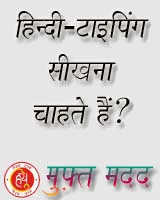Sahim Salim
Says Supreme Court, Delhi Police, NHRC and AIIMS gave out little information.
A jamia Nagar resident has drawn a blank from all quarters — Supreme Court, Delhi Police, National Human Rights Commission (NHRC) and AIIMS ¿ on his RTI application seeking information on the September 19 encounter at Batla House in South Delhi.
According to Afroz Alam Sahil, he had filed four separate applications under the RTI Act on September 25, and the replies, he claims, are vague at best.
The apex court and city police replied 40 days after he filed the RTI, Sahil says.
Alam said he had posed six questions, of which the police submitted answers to just three. The police ignored questions related to the number of arrests and detentions made after the serial blasts in the Capital on September 13.
Alam had also asked for a copy of the postmortem reports of the two alleged militants and Inspector M C Sharma, all killed in the encounter, and the copy of the FIR lodged afterwards. While the police refused to part with copies of the autopsy saying “disclosure of the information may impede investigation”, they said “the copy of FIR can only be provided to the complainant”.
In the RTI application filed to the Supreme Court, Alam had asked how many cases had been filed against people or organisations in blast cases, and punishment meted out to those convicted. Alam also asked whether there were any cases in which Delhi Police had made arrests but could not provide evidence.
Supreme Court replied that “cases against terrorists are not directly filed in the court”, and “it is beyond the jurisdiction and scope of duties of the CPIO (Central Public Information Officer) under the RTI Act to interpret law and judgments of the Supreme Court.”
Alam had requested AIIMS to give a copy of the postmortem but the hospital said it could not give out a copy since it was related to the medico legal records (MLC) under Sections 8(1)b and 8(1)h of the RTI Act. These sections are meant for information expressly forbidden to be published by any court. NHRC was asked about the number of police encounters the Commission is looking into, and how many of them were found to be fake. The Commission’s reply said it had received 2,560 cases of encounters, of which it granted compensation in 16 cases. But the NHRC did not give details of these 16 cases.
“It is sad that these institutions turned a deaf ear to the power of RTI,” Alam said.
http://www.expressindia.com/latest-news/batla-encounter-jamia-resident-draws-vague-replies-on-rti/382959/
शनिवार, 8 नवंबर 2008
सदस्यता लें
टिप्पणियाँ भेजें (Atom)






0 टिप्पणियाँ:
एक टिप्पणी भेजें